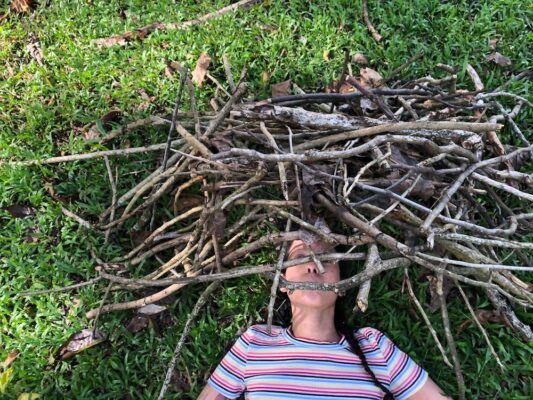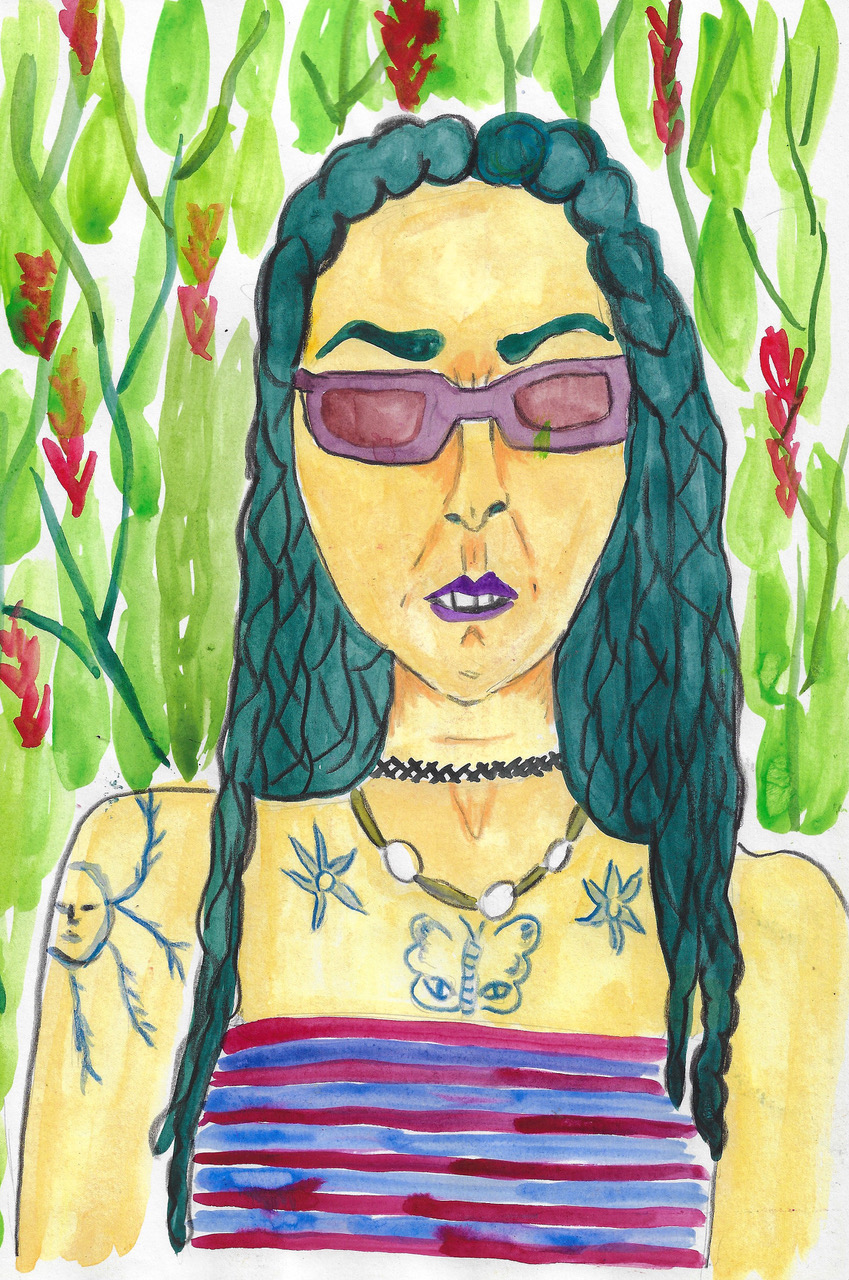Search
To search for an exact match, type the word or phrase you want in quotation marks.
A*DESK has been offering since 2002 contents about criticism and contemporary art. A*DESK has become consolidated thanks to all those who have believed in the project, all those who have followed us, debating, participating and collaborating. Many people have collaborated with A*DESK, and continue to do so. Their efforts, knowledge and belief in the project are what make it grow internationally. At A*DESK we have also generated work for over one hundred professionals in culture, from small collaborations with reviews and classes, to more prolonged and intense collaborations.
At A*DESK we believe in the need for free and universal access to culture and knowledge. We want to carry on being independent, remaining open to more ideas and opinions. If you believe in A*DESK, we need your backing to be able to continue. You can now participate in the project by supporting it. You can choose how much you want to contribute to the project.
You can decide how much you want to bring to the project.

Reality is overwhelming. Sometimes it seems there’s nowhere to move, a feeling that is stronger than the cushy life offered to allow us to keep things in place. Personally, I like to see criticism or critical thinking that is as far removed from complaining as possible, and recently I have been trying to propose more solutions. It’s complex. Thinking is always a challenge, for if not, then it’s something else. Having universal and generic answers isn’t attractive, to put it superficially.
1. Freedom of the Market
Freedom is an increasingly diffuse concept. By certain criteria, it seems that late capitalism has given us “more” freedoms than ever before. This is debatable. Beyond that, though, under constant hyper-surveillance today, freedom corresponds to a level of consumption. A person can move and choose between brands, browse through options, and be revolutionary by buying cruelty-free skin care imported from the other side of the world. You can choose what to watch or to listen to, how to dress, the type of milk to drink, and to be the alternative of the alternative. What we consume seems to be our moral parameter and index of freedom. This is painful and offensive. Before celebrating any argument in favor of supposed freedom (“Long live freedom, motherfuckers”), I want us to consider another, older and more accessible aspect of freedom.
It seems to me that the first symptom of freedom isn’t the miles a credit card gives you but rather disobedience, a natural exercise that we lose as we begin to understand how certain things work. In theory, this occurs because it makes everything more bearable, but in fact this progressive train of thought is already derailed. To de-banalize freedom, we have to encourage disobedience. Among its many options, I find that curiosity and nonconformity can offer the keys to the gilded cage. The strategy of our system is to co-opt our imagination. “Nothing outside of this is possible, and even if it exists, it is not desirable.” These kinds of premises, hidden in as many places as possible, are discouraging, and they make us part of the defeatism and apathy that prevent us from overturning the very logic we despise.
As opposed to this, I would like to share one of my most frequent fantasies, which may seem naive but is actually quite ambitious, that is, to ask ourselves difficult questions and get together with others in order to answer them. To ask complicated and uncomfortable questions, to look each other in the eye, and to dialogue and listen is our only and last resort. To take it seriously, to sit down and attend to the full range of emotions, to know that we are related but different, to dissipate war by verbalizing the conflict until we are exhausted, unable to do anything but stop to eat and rest, to be silent to digest it all, and only then go back to words. It may be useless but it is what we need.
Beyond fantasy, it is good to start ruminating on certain questions: Can we stop this machine? How can we participate less? What should we let go of and what should we add?
2. Live From What you Love, Be Your Own CEO
When I say “the illness of our time,” this is what I mean. We can’t sit down and answer the above-mentioned questions because it’s unthinkable to stop producing now, even knowing that we’re overwhelmed. If it’s complex to ask “How?,” it’s even more difficult to know “When?” Even if we have the urgency and the desire, we may lack the tools, accomplices, or courage.
Our time and energy belong to consumption and production. It’s might be more tiring, but there is more purpose in living from what you love. You have to establish yourself as a personal brand, network, be a content creator, have a strategy and identity, create good copy, and upload it at the right time! It’s the new bureaucracy, and if you’re your own boss, you have to even be a bit of a tyrant.
We can’t deny that we need to stop. To stop intervening, stop doing more. It seems that even in the “art world” vagrants are no longer tolerated. Everything is raw material, and you always have to have something to show. The imperative is real and it’s complicated, because of course there are always things to pay for. This is why some questions are more difficult than others, because they conflict with survival, and we’re not prepared to see certain abysses up close. There are no certain ways to dispel uncertainties, but we’ve been infected with a vertigo that makes us stop. When are we going to kill time again? We need to be bored and annoyed so that no one notices what we’re thinking.
The illness of our time. I’m sure it’s not just me. I want to experience inspiration as a consequence of life and not search for it on Pinterest with the clever but meddlesome algorithm that prevents me from encountering it fortuitously.
Free time is prohibited, which is why we’re all so anxious and exhausted. With our eyelashes singed from the glare of the screen while we’re trying to distract ourselves, we even forget about resting.
3. It’s not a Conclusion, We’re Just Getting Started
To fulfill our fantasy of being the vagabonds who rehearse answers and formulate and reformulate questions, we will have to waste time again, find out if silence is possible in the city, imagine the shapes of clouds again, play games with our hands and feet, sing about what goes on in front of us, sit down and read aloud, dare to challenge ignorance with ingenuity, learn to grow plants, allow ourselves to be patient, and do whatever else we can think of to reclaim our own attention. I would like to think that, to recognize other forms of freedom, we must be destroy content, be antiviral and inadequate, oppose trends, recognize that everything is unique, and understand that monoculture is boring and artificial.
It’s simple and exciting to write this, but it’s complex to combine leisure and work. We must become tightrope walkers of sharp questions, of contradictory answers, of wandering imaginations, of failed attempts, and of silent achievements, and not be discouraged by starting over and over again.
We must not pursue the obvious answers that are so readily available yet so distant. Immediacy always seems deceptive to me, it hides something. To think of freedom apart from praising the market is to return to complexity, to sit and look at the mess, to approach the complicated like a Ouija board where several hands are necessary to make contact with the world we want to create.
I would like to close on a high note. Although everywhere we look there are terrible things, we must open our hearts and senses to what doesn’t make noise. I believe this is the main form of disobedience. To listen to whispers, to give way to the intangible and its living networks. It’s okay to feel disoriented. The illness of our time is that the paths we have been given lead directly to a cliff. We need other ways to find and practice gestures of gentleness and attention, to let what is about to die rot away so that it can become fertilizer for a new garden.

Victoria Alegría (Panama City, 1992). Earthling, philosopher and poet. She has a few things to say, but for now she prefers to keep quiet and write.
Portrait by © ArmadilloWoman
"A desk is a dangerous place from which to watch the world" (John Le Carré)